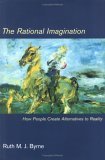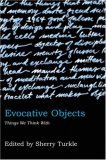August 26, 2007
Journal of Consciousness Studies, Aug 2007 (vol. 14, no. 8 )
For non-subscribers the website has full text of two conference reports (by Stuart Hameroff and Walter Truett Anderson) and five book reviews, plus abstracts of the articles.
Books reviewed in the current issue:
Michael Spivey, The Continuity of Mind  , reviewed by Igor Aleksander
, reviewed by Igor Aleksander
Imants Barušs, Science as a Spiritual Practice , reviewed by Allan Combs
, reviewed by Allan Combs
Marc Bekoff, The Emotional Lives of Animals: A Leading Scientist Explores Animal Joy, Sorrow, and Empathy – and Why They Matter , reviewed by Jonathan Balcombe
, reviewed by Jonathan Balcombe
Raymond Martin and John Barresi, The Rise and Fall of Soul and Self: An Intellectual History of Personal Identity , reviewed by E.J. Lowe
, reviewed by E.J. Lowe
Arthur J. Hudson, The Physiological Basis And Quantum Versions of Memory And Consciousness , reviewed by Chris Nunn
, reviewed by Chris Nunn
journal home page
compiled list of available full text articles
Comments (0)
- consciousness
August 25, 2007
New York Times review of The Political Brain: The Role of Emotion in Deciding the Fate of the Nation by Drew Westen: “…takes an interesting dollop of neuroscience and uses it to coat the conventional clichés of the Why Democrats Lose genre.”
by Drew Westen: “…takes an interesting dollop of neuroscience and uses it to coat the conventional clichés of the Why Democrats Lose genre.”
Comments (0)
- culture,mind
August 23, 2007

The Rational Imagination: How People Create Alternatives to Reality by Ruth M.J. Byrne – discusses research on cognitive processes involved in counterfactual (“if only…”) and semifactual (“even if…”) thinking.
excerpt from the summary, p. 214:
This book has sketched seven principles derived from the study of reasoning that explain imaginative thoughts. People think about possibilities, … true possibilities. They do not tend to think about false possibilities. They also tend to think about just a few of the true possibilities. People can think about dual possibilities… When they think about counterfactual possibilities, they can think about a possibility that is false, and they may even suppose it to be true. They keep track of whether the possibilities they think about are real or imagined. Dual possibilities are more mutable than single possibilities; people can more readily create a counterfactual alternative to a possibility when they have mentally represented it from the outset with a second possibility. People understand obligations by thinking about the forbidden possibility as well as the permitted possibility. They can imagine how a situation should have been different by mentally changing a forbidden possibility to be more like the permitted possibility. The possibilities people envisage encode temporal information about the order of events in the world. The seven principles are not intended as an exhaustive set; nonetheless this fragment provides the beginnings of an explanation of the counterfactual imagination, The principles help to explain some of the remarkable regularities in the counterfactual alternatives that people create. For example, they explain why people create counterfactual alternatives to actions, to controllable events, to forbidden events, and to recent events. They explain why counterfactual thoughts focus on enabling causal relations and semifactual thoughts focus on weak causal relations.
My claim is that the counterfactual imagination is rational. … the set of principles that guide the possibilities people think about when they reason also guide their imaginative thoughts.
more information at Google Book Search
Comments (0)
- mind
 “The Objects of Our Desire”, an article in today’s Washington Post discusses the new book
“The Objects of Our Desire”, an article in today’s Washington Post discusses the new book
Evocative Objects: Things We Think With , edited by Sherry Turkle, director of the MIT Initiative on Technology and Self. Evocative Objects is the first of a planned three-book series on technology and self.
, edited by Sherry Turkle, director of the MIT Initiative on Technology and Self. Evocative Objects is the first of a planned three-book series on technology and self.
See also Andy Clark, Natural-Born Cyborgs: Minds, Technologies, and the Future of Human Intelligence , suggesting humans are “beings primed by Mother Nature to annex wave upon wave of external elements and structures as part and parcel of their own extended minds.” (p. 31)
, suggesting humans are “beings primed by Mother Nature to annex wave upon wave of external elements and structures as part and parcel of their own extended minds.” (p. 31)
Comments (0)
- culture,mind,self
August 21, 2007
Here is a list of books on the self, published in 2007 or coming soon, the start of a cumulative list to be placed in the sidebar.
Berkeley’s Philosophy of Spirit: Consciousness, Ontology and the Elusive Subject by Talia Mae Bettcher (London ; New York : Continuum, 2007).
The Concealed Art of the Soul: Theories of the Self and Practices of Truth in Indian Ethics and Epistemology by Jonardon Ganeri (Oxford : Clarendon, 2007)
by Jonardon Ganeri (Oxford : Clarendon, 2007)
The First Person Singular  by Alphonso Lingis (Evanston, Ill.: Northwestern University Press, 2007).
by Alphonso Lingis (Evanston, Ill.: Northwestern University Press, 2007).
I Am a Strange Loop by Douglas R Hofstadter (New York : Basic Books, 2007)
by Douglas R Hofstadter (New York : Basic Books, 2007)
The Messy Self ed. by Jennifer Rosner (Boulder : Paradigm Publishers, 2007). [“an edited volume that challenges the idea and the ideal of a coherent, harmonious self”]
ed. by Jennifer Rosner (Boulder : Paradigm Publishers, 2007). [“an edited volume that challenges the idea and the ideal of a coherent, harmonious self”]
(more…)
Comments (0)
- new books,self
, reviewed by Igor Aleksander
, reviewed by Allan Combs
, reviewed by Jonathan Balcombe
, reviewed by E.J. Lowe
, reviewed by Chris Nunn




